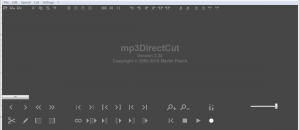 A few weeks back, I was surfing the web and came across a website. I no longer remember the specific details of what that website was, but I remember there was a slider on the website. To work that slider I continually tried to slide it by using a touch gesture (swiping left) with my mouse even though I was on a traditional non-touch Windows 7 PC. I didn’t realize my mistake until a few seconds later when it dawned on me: I wasn’t on my touchscreen phone, I was on my PC – I had to click the right/left arrows. Then it hit me hard: Wow this sucks, not being able to use touch gestures. Apparently Microsoft agrees with me; they just revealed details about Windows 8 and guess what? It is optimized for touch.
A few weeks back, I was surfing the web and came across a website. I no longer remember the specific details of what that website was, but I remember there was a slider on the website. To work that slider I continually tried to slide it by using a touch gesture (swiping left) with my mouse even though I was on a traditional non-touch Windows 7 PC. I didn’t realize my mistake until a few seconds later when it dawned on me: I wasn’t on my touchscreen phone, I was on my PC – I had to click the right/left arrows. Then it hit me hard: Wow this sucks, not being able to use touch gestures. Apparently Microsoft agrees with me; they just revealed details about Windows 8 and guess what? It is optimized for touch.
As we know already, Windows 8 will be ARM-based as opposed to the traditional x64 architecture. Now we have more details about specifically how Windows 8 will look, feel, and behave:
- For those familiar with Windows Phone 7, Windows 8 will feel familiar. Windows 8 highly incorporates the “tiles” design of Windows Phone 7.
- Windows 8 will support two types of apps/programs. The first type of programs supported on Windows 8 are the traditional PC programs, such as the ones that run on Windows 7. In other words, non-touch based programs. The second type of programs supported on Windows 8 are mobile-like programs (i.e. touch based and open full screen) written in HTML5 and Javascript. Internet Explorer 10, which will be available in Windows 8, has already been designed to be a mobile-like program.
- There will be support for hardware keyboards and mice (usable in both types of programs mentioned above), but there will be plenty of virtual keyboards available to use – including different keyboards depending on the orientation of your device – and support for touch gestures for navigation.
- There will be an app store for Windows 8.
- Windows 8 will run on laptops, desktops, and tablets.
- Windows 8 will “use less resources” than Windows 7.
However, take note this does not mean if your computer can run Windows 7 it will run Windows 8. If your CPU does not support ARM architecture (which all CPUs in traditional Windows computer don’t), you won’t be able to run Windows 8.- Update: There is still a bit of confusion about if Windows 8 will only work on ARM CPUs or if it will also work on traditional CPUs. No one really knows.
There are no details about the launch date or pricing, but there is a juicy video that we can all drool or rage at (depending on which side of the line you sit at):
The “post-PC” era has arrived? Reflect in the comments section below!
[via Engadget]

 Email article
Email article



